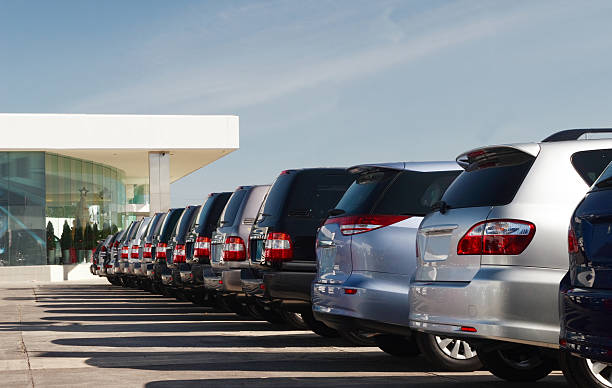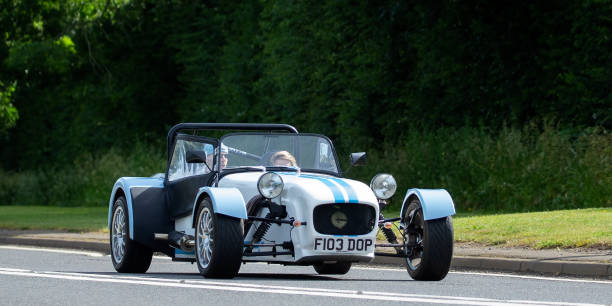Automotive heritage reflects the rich history of vehicle design and innovation. Classic cars symbolize cultural, social, and technological changes throughout decades. Preserving this heritage requires dedicated efforts from communities.
Car clubs play an essential role in celebrating and maintaining these automotive treasures. Their passion drives preservation and education about historic vehicles. The clubs help ensure future generations appreciate automotive history and craftsmanship.
Without these clubs, many historic vehicles might be lost, forgotten, or left to deteriorate. They provide a structured platform for restoration and sharing of knowledge about automotive heritage preservation.
2. The Role of Car Clubs in Restoration
Car clubs bring enthusiasts together, sharing skills and resources needed for vehicle restoration. Members often collaborate to source rare parts and offer hands-on support for repairs and maintenance.
Restoration projects often require technical expertise and a deep understanding of a vehicle’s history. Clubs help educate members through workshops, events, and mentorship programs. This preserves authentic restoration practices and standards.
Through collective effort, car clubs revive classic vehicles, returning them to their former glory. This restoration helps keep automotive history tangible and accessible for fans and historians alike.
3. Community Building Among Enthusiasts
Car clubs create a sense of belonging for like-minded automotive enthusiasts. They provide a social environment to share passion, experiences, and knowledge about cars and their histories.
The community aspect encourages continuous learning and engagement in preservation activities. Members often develop lifelong friendships based on their shared dedication to automotive heritage.
Such communities help raise awareness about the importance of preserving classic cars. Events, shows, and meetups allow members to showcase vehicles and educate the public.
4. Educational Outreach and Awareness
Car clubs often organize public events that educate people on automotive history. These include exhibitions, rallies, and speaking sessions highlighting vehicle evolution and design significance.
Educational efforts target younger generations, inspiring them to appreciate and continue preservation work. Clubs collaborate with schools, museums, and local organizations to promote automotive heritage.
By fostering awareness, clubs help ensure a future where classic cars remain cherished and maintained. This outreach is crucial in passing down automotive culture and knowledge.
5. Preserving Rare and Unique Vehicles
Many classic vehicles are rare, sometimes with very few remaining worldwide. Car clubs are vital for tracking, documenting, and maintaining these rare automobiles.
Their networks help locate original parts or suitable replacements, ensuring the vehicles retain historical accuracy. This preservation effort protects automotive diversity and craftsmanship.
Without car clubs, rare vehicles might become inaccessible or lost, risking a permanent gap in automotive heritage. Clubs act as custodians for these irreplaceable treasures.
6. Organizing Car Shows and Events
Car clubs frequently host car shows, rallies, and exhibitions that celebrate automotive history. These events offer members a platform to display their restored vehicles proudly.
Public participation in such events helps raise broader awareness about classic cars and their historical importance. Car shows also foster community spirit and encourage new members.
Events organized by clubs serve as living museums, where people can experience automotive heritage firsthand. They provide fun, education, and preservation in one dynamic setting.
7. Supporting Research and Documentation
Car clubs often contribute to researching automotive history and maintaining archives. Documentation includes vehicle specifications, production histories, and restoration records.
These efforts preserve valuable information for historians, collectors, and enthusiasts. Clubs publish newsletters, magazines, and online content to share knowledge widely.
Such documentation ensures automotive heritage is recorded accurately, safeguarding it from fading into obscurity. It supports ongoing preservation and restoration efforts globally.
8. Passing Down Skills to Future Generations
Restoring and maintaining classic cars require specific skills often lost over time. Car clubs help pass down these skills through training and mentorship programs.
Young enthusiasts learn traditional techniques such as mechanical repairs, bodywork, and painting from experienced members. This skill transfer keeps restoration authentic and sustainable.
By educating future generations, clubs ensure automotive heritage preservation remains active and vibrant, securing the longevity of classic vehicles.
9. Encouraging Sustainable Practices
Car clubs encourage sustainable preservation by promoting careful maintenance rather than replacement. Restoring and maintaining old vehicles reduces waste compared to discarding them.
They also advocate for responsible sourcing of parts and eco-friendly restoration techniques when possible. This mindset aligns preservation with modern environmental awareness.
Such sustainable practices ensure automotive heritage can be preserved without compromising future ecological health or resource availability.
10. Creating Economic Benefits
Car clubs generate economic activity by supporting businesses related to restoration, parts manufacturing, and classic car sales. This creates jobs and sustains specialized industries.
Events organized by clubs attract tourism, benefiting local economies. Classic car shows and auctions often bring in significant revenue and media attention.
Through their activities, car clubs create a positive economic impact while supporting automotive heritage preservation in practical, sustainable ways.
11. Advocating for Legal and Regulatory Support
Car clubs often lobby for laws that protect classic cars and support their preservation. They advocate for reduced taxes, relaxed emissions rules, and preservation-friendly regulations.
Such advocacy helps create a legal environment conducive to maintaining and using historic vehicles. Clubs act as the voice of enthusiasts in policymaking arenas.
By influencing policy, car clubs protect automotive heritage from regulations that could hinder preservation efforts or make ownership difficult.
12. Conclusion: The Lasting Legacy of Car Clubs
Car clubs are indispensable in preserving automotive heritage for future generations. Their dedication to restoration, education, and community fosters ongoing appreciation of classic cars.
By uniting enthusiasts, supporting sustainable practices, and advocating for preservation-friendly policies, clubs ensure automotive history remains alive and relevant.
The legacy of car clubs extends beyond vehicles to cultural and social heritage, making them true custodians of the automotive past and its future.












